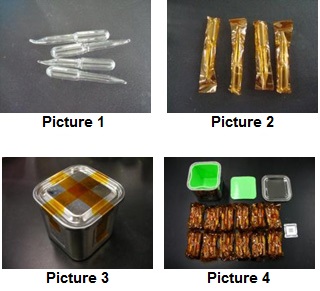 |
Pikaru, a member of the investigation team for the space experiment, closely examines the Space Pup experiment!
Pikaru asked the Doctor, a friend of the researcher who proposed the experiment, Professor Wakayama, about the experiment. |
 |
Doctor |
|
Pikaru |
|
Pikaru: |
These days, experiments in the field of life sciences are carried out one after another. I heard that ES cells for the Stem Cells Experiment conducted by Professor Morita of Osaka City University
successfully arrived at the International Space Station (ISS) and were stored in a freezer in the Japanese Experiment Module, Kibo. |
Doctor: |
That’s right. The Stem Cells experiment started in March 2013. Next is the Space Pup experiment,
which resembles the Stem Cells experiment in terms of preservation of samples in space. The Space Pup experiment will use mouse germ cells, that is, spermatozoa,
which will be freeze-dried and sent to space. |
Pikaru: |
Freeze-dried? Like dehydrated soups? |
Doctor: |
Yes. Materials are frozen, and then the pressure is lowered to a vacuum to dry the materials further.
Professor Wakayama succeeded in producing baby mice by injecting freeze-dried spermatozoa into mouse egg cells. |
Pikaru: |
What? Mouse babies were born from freeze-dried sperm? |
Doctor: |
That’s right. By the way, Pikaru, you said you ate Yakiniku (grilled meat) yesterday, didn’t you? In
famous beef cattle-breeding districts, the sperm of good-tasting beef bulls are carefully preserved and used to sire good-tasting calves. High-quality livestock
can be bred systematically by artificially fertilizing egg cells with frozen, preserved sperm and implanting the fertilized egg in a cow’s womb. |
Pikaru: |
I see that frozen sperm is useful! But what’s the relationship with freeze drying? |
Doctor: |
Normally, livestock sperm are preserved in liquid nitrogen. Liquid nitrogen is liquid at a temperature
of -196°C, and it evaporates easily and quickly. So, to keep the sperm frozen, you must keep adding liquid nitrogen, which takes a lot of time and effort and
requires someone’s full attention. If electric freezers that don’t require resupply with liquid nitrogen can be used for preservation, it will greatly simplify
the preservation. But it is difficult to keep sperm for a long time at a temperature that a normal freezer can barely achieve. |
Pikaru: |
I heard that the Stem Cells experiment has also had trouble with freezing. |
Doctor: |
By freeze-drying sperm, the Space Pup experiment has established a method of preventing sperm
degradation, even if the temperature rises. The freeze-dried sperm doesn’t degrade at room temperature for a month or so, and theoretically, it can be kept
semipermanently in a freezer at -80°C or below. I think you know that a sperm has a set of chromosomes containing father-derived deoxyribonucleic acid (DNA) to
pass on genetic information to children, and that a mother-derived egg cell is the same, except that it contains mother-derived DNA. |
Pikaru: |
Yes, I know. A sperm and an egg cell unite to form a fertilized egg. |
Doctor: |
OK. In this experiment, freeze-dried sperm will be stored for up to two years and, after returning to
Earth, they will be artificially injected into mouse egg cells. This artificial fertilization will be performed using a difficult technique called microinjection.
The fertilized eggs will be returned to the wombs of mother mice, and baby mice will be born, derived from sperm that have traveled in space. |
Pikaru: |
Really? Baby mice from sperm that traveled in space for two years? |

Equipment and materials for the space experiment.
Picture 1: Glass ampoules for freeze-dried spermatozoa.
Picture 2: Each ampoule covered with protective tape for transport.
Picture 3: Sample case.
Picture 4: Contents of the sample case. Forty-eight ampoules can be stored in a case measuring 8 cm per side. All contents are compactly packed. |
Doctor: |
Using DNA from mouse cells that had been frozen for 16 years, Professor Wakayama has succeeded in
producing baby mice. I’m convinced that this experiment will succeed. |
Pikaru: |
But Doctor, why are freeze-dried sperm brought to space? To investigate the effects of cosmic radiation? |
Doctor: |
Of course, the effects of cosmic radiation on fertilization and development of the sperm will be
investigated. But, there is another purpose, the “Noah’s ark” plan. |
Pikaru: |
Noah’s ark? You mean an ark that took a variety of animals aboard when there was a great flood? |
Doctor: |
Yes. In the unlikely event that some species become extinct due to a catastrophe on
Earth, at least their genetic information will survive if long-term sperm preservation can be achieved in space. |
Pikaru: |
It sounds like a science-fiction story. |
Doctor: |
Although the samples will be preserved in the ISS this time, in future, genetic information might be stably preserved in depositories constructed on the Moon or Mars. |
Pikaru: |
It’s a dreamlike story. |
Doctor: |
Yes. All science starts with dreams and leads to realization. A crazy, unreasonable idea can lead to a discovery that overturns common sense. This Space Pup experiment involves a very interesting aspect, a genetic depository in space. Of course, the effect of cosmic radiation on samples will also be investigated thoroughly. |
Pikaru: |
If the effect of the space environment on mouse sperm is clarified in this experiment, it will lead to research on whether we humans can have descendants in space. Preservation of genes of a wide variety of living things in space may be a good thing for us humans to consider, just in case. Well, Doctor, I have one last question. What does “pup” mean? |
Doctor: |
Pup means the young of animals. The Space Pup experiment is forward-looking, experimental
research. |
Pikaru: |
That’s cool! Thank you very much, Doctor. |



